Since it was first proposed, I’ve been warning (not once but twice!) about the FISCR Fast Track, a part of the USA Freedom Act that would permit the government to immediately ask the FISA Court of Review to review a FISC decision. The idea was sold as a way to get a more senior court to review dodgy FISC decisions. But as I noted, it was also an easy way for the government to use the secretive FISC system to get a circuit level decision that might preempt traditional court decisions they didn’t like (I feared they might use FISCR to invalidate the Second Circuit decision finding the phone dragnet to be unlawful).
Sure enough, that’s how it got used in its first incarnation — not just to confirm that the FISC can operate by different rules than criminal courts, but also to put down a judges rebellion.
As I noted back in 2014, the FISC has long permitted the government to collect Post Cut Through Dialed Digits using FISA pen registers, though it requires the government to minimize anything counted as content after collection. It reviewed that issue in 2006 and 2009 (both ties after magistrates in the criminal context deemed PCTDD to be content that was impermissible).
At least year’s semiannual FISC judges’ conference, some judges raised concerns about the FISC practice, deciding they needed to get further briefing on the practice. So when approving a standing Pen Register, the FISC told the government it needed further briefing on the issue.
They didn’t deal with it for three months until just as they were submitting their next application. At that point, there was not enough time to brief the issue at the FISC level, which gave then presiding judge Thomas Hogan the opportunity to approve the PRTT renewal and kick the PCTDD issue to the FISCR, with an amicus.
Importantly, when Hogan kicked the issue upstairs, he did not specify that this legal issue applies only to phone PRTTs.
At the FISCR, Mark Zwillinger was permitted to weigh in as an amicus. He saw the same problem as I did. While the treatment of phone PCTDD is bad but, if properly minimized, not horrible, it becomes horrible once you extend it to the Internet.
The FISCR didn’t much care. They found the collection of content using a PRTT, then promising not to use it except to protect national security (and a few other exceptions to the rule that the government has to ask FISC permission to use this stuff) was cool.
Along the way, the FISCR laid out several other dangerous precedents that will have really dangerous implications. One is that content to a provider may not be content.
This is probably the issue that made the bulk PRTT dragnet illegal in the first place (and created problems when the government resumed it in 2010). Now, the problem of collecting content in packets is eliminated!
Along with this, the FISCR extended the definition of “incidental” to apply to a higher standard of evidence.
Thus, it becomes permissible to collect using a standard that doesn’t require probable cause something that does, so long as it is “minimized.”
Finally, addition, FISCR certified the redefinition of “minimization” that FISC has long adopted (and which is crucial in some other programs). Collecting content, but then not using it (except for exceptions that are far too broad), is all good.
In other words, FISCR not only approved the narrow application of using calling card data but not bank data and passwords (except to protect national security). But they also approved a bunch of other things that the government is going to turn around and use to resume certain programs that were long ago found problematic.
I don’t even hate to say this anymore. I told privacy people this (including someone involved in this issue personally). I was told I was being unduly worried. This is, frankly, even worse than I expected (and of course it has been released publicly so the FISCR can start chipping away at criminal protections too).
Yet another time my concerns have been not only borne out, but proven to be insufficiently cynical.
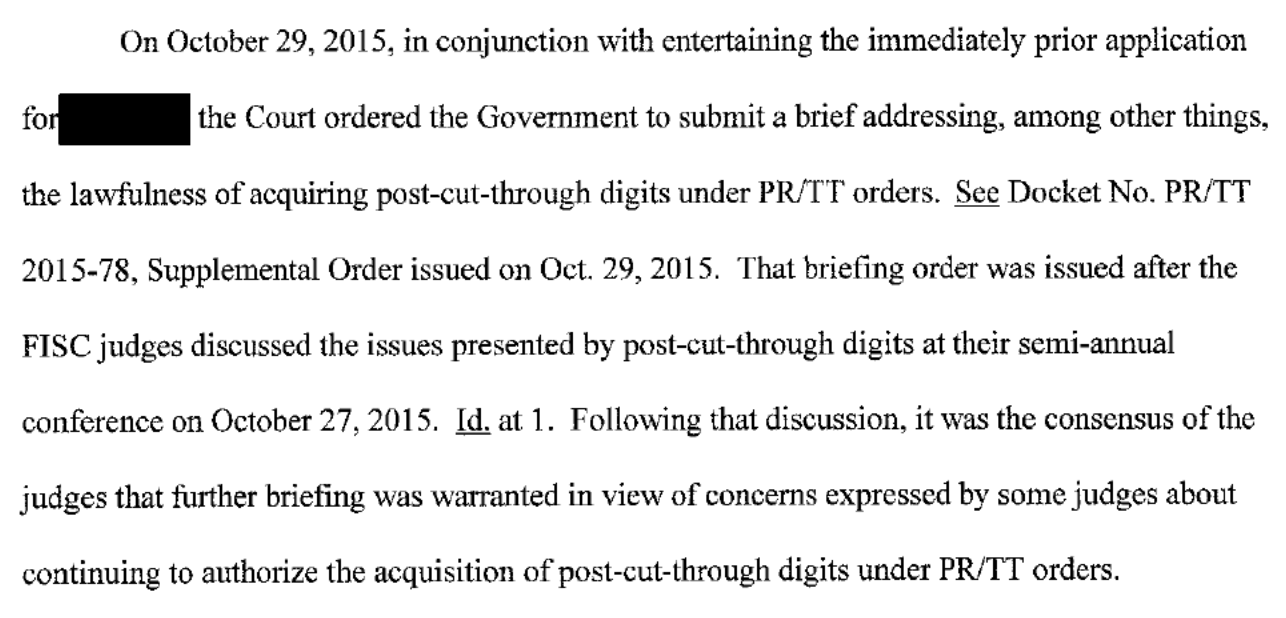
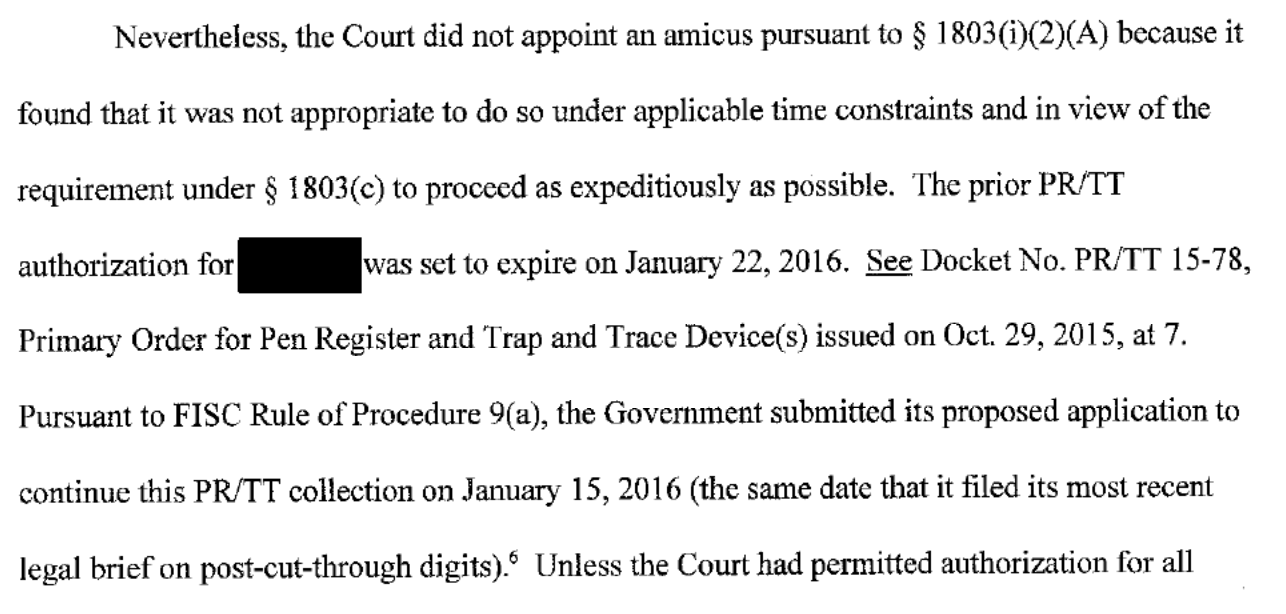
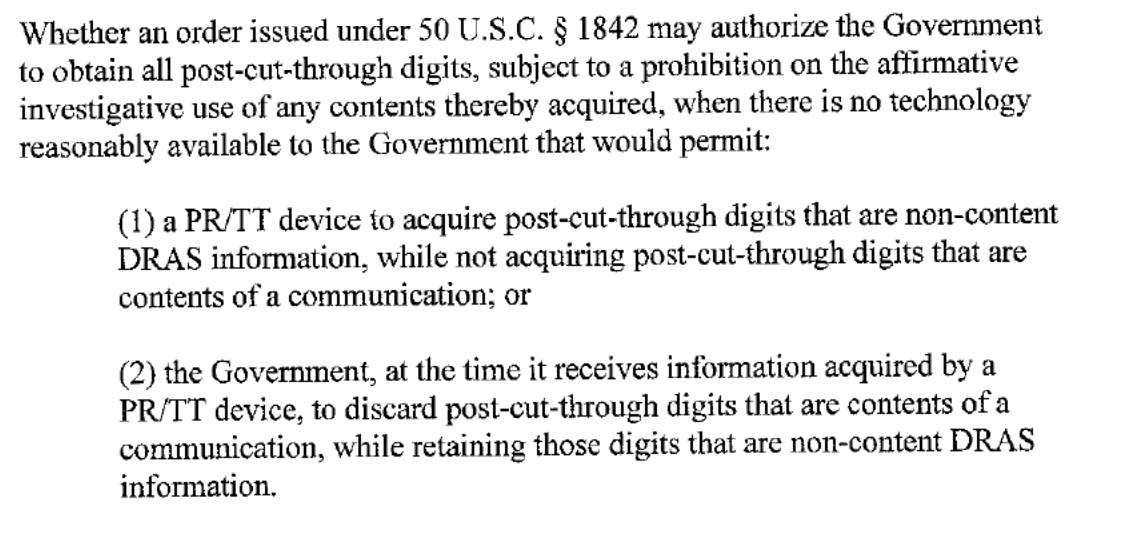
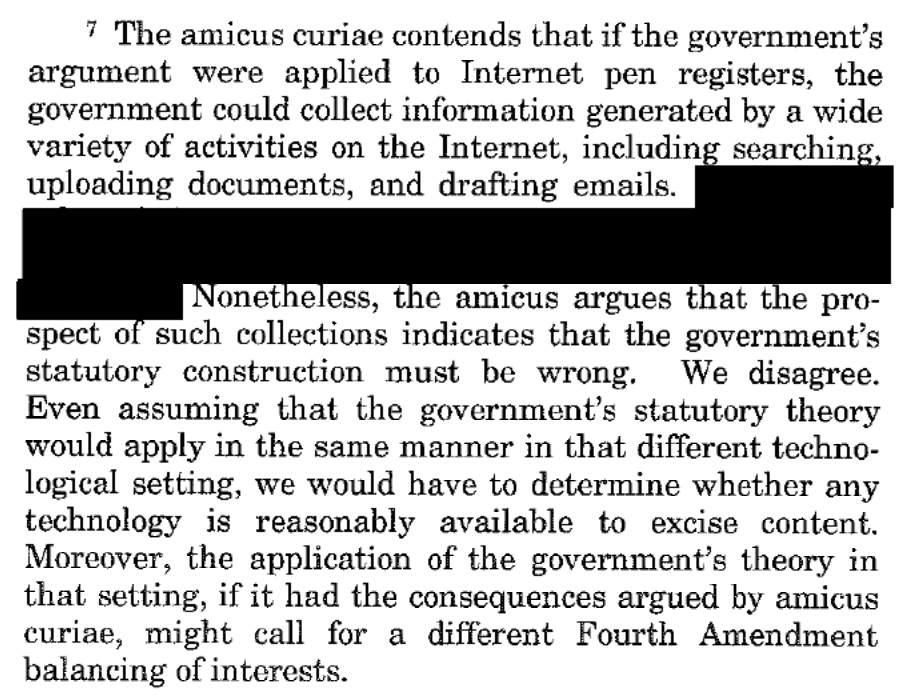
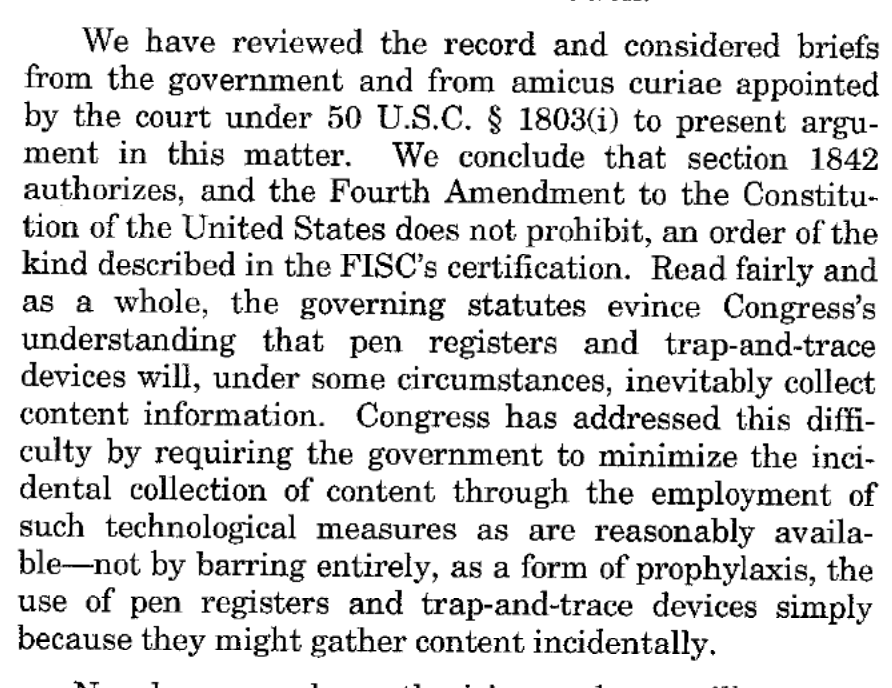
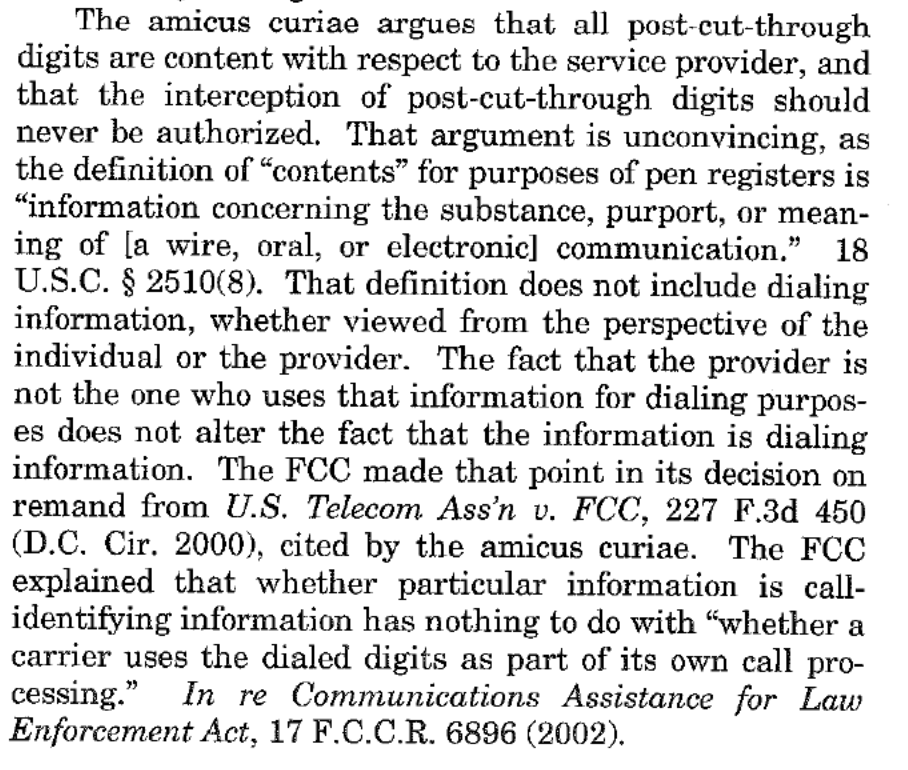
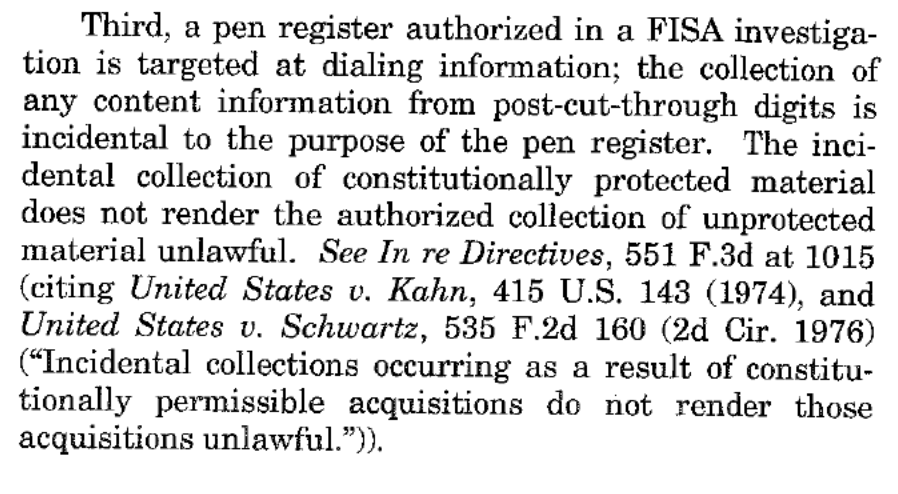
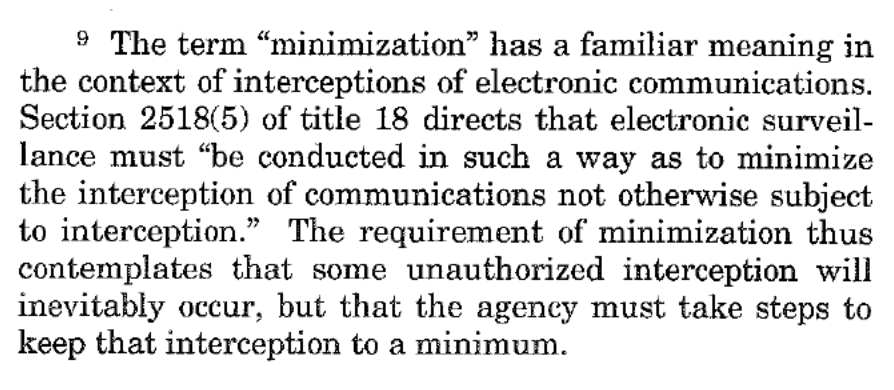
No comments:
Post a Comment
To reduce spam, this alternate site requires users register to comment or use OpenID. Comments on posts more than (5) days old subject to moderation. Comments posted at this site will not appear at the original/primary site.